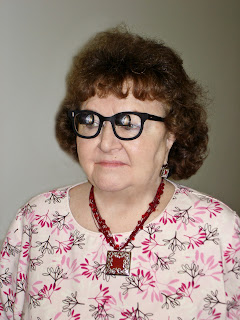Four years ago, Clyde Sarver, woke up and discovered that he had suffered a severe vision loss in his left eye. The New Castle man had experienced a broken blood vessel in that eye. Soon after that Mr. Sarver began to notice that his vision in the right eye was becoming blurred. He was then diagnosed with macular degeneration. Although he is receiving treatment from his retinal specialist, his blurred vision continues to bother him.
Recently the 77 year old man visited Dr. David L. Armstrong, a Roanoke, VA optometrist, who often helps patients whose vision has been damaged by disease or injury. Dr Armstrong is one of a few optometrists nationally who care for patients with low vision.
Dr. Armstrong prescribed three different types of low vision glasses for Mr. Sarver, each for a different purpose. For driving and other distance vision, bioptic telescopic glasses were prescribed. Clear Image microscopic glasses were prescribed to help with reading. Mr. Sarver states that with them he is able to read as well as he did when he was a much younger man. A new type of glasses, called E-Scoop are for general use. Developed in The Netherlands, the E-Scoops magnify, improve contrast and divert the image away from the damaged macula. Mr. Sarver told Dr. Armstrong that he really likes that pair and takes them everywhere.
Although people with low vision cannot be helped with conventional eyeglasses, low vision optometrists are often able to prescribe special glasses, like Mr. Sarver’s, which help. There is no cure for macular degeneration, diabetic retinopathy, Stargardt’s Disease and other sight damaging diseases but appropriately prescribed low vision glasses often improve a person’s quality of life.
With his special new glasses Clyde Sarver is able to enjoy watching University of Virginia games on television, play solitaire on his computer and see better for outdoor activities. Now that he can see the print better he is getting back to reading. Being able to read has helped him maintain his interests. “I like to read absolutely everything that’s printed and now I can.”
Before getting his new low vision glasses, Mr. Sarver says “I plodded along, and tried to use magnifying glasses, but none worked well. These new glasses give me a little bit of freedom. I can go to town if I want.”
Dr. Armstrong always speaks with low vision patients by phone to determine if he can help them before scheduling an appointment. Call 866 321-2030 for a free telephone consultation with Dr. Armstrong





